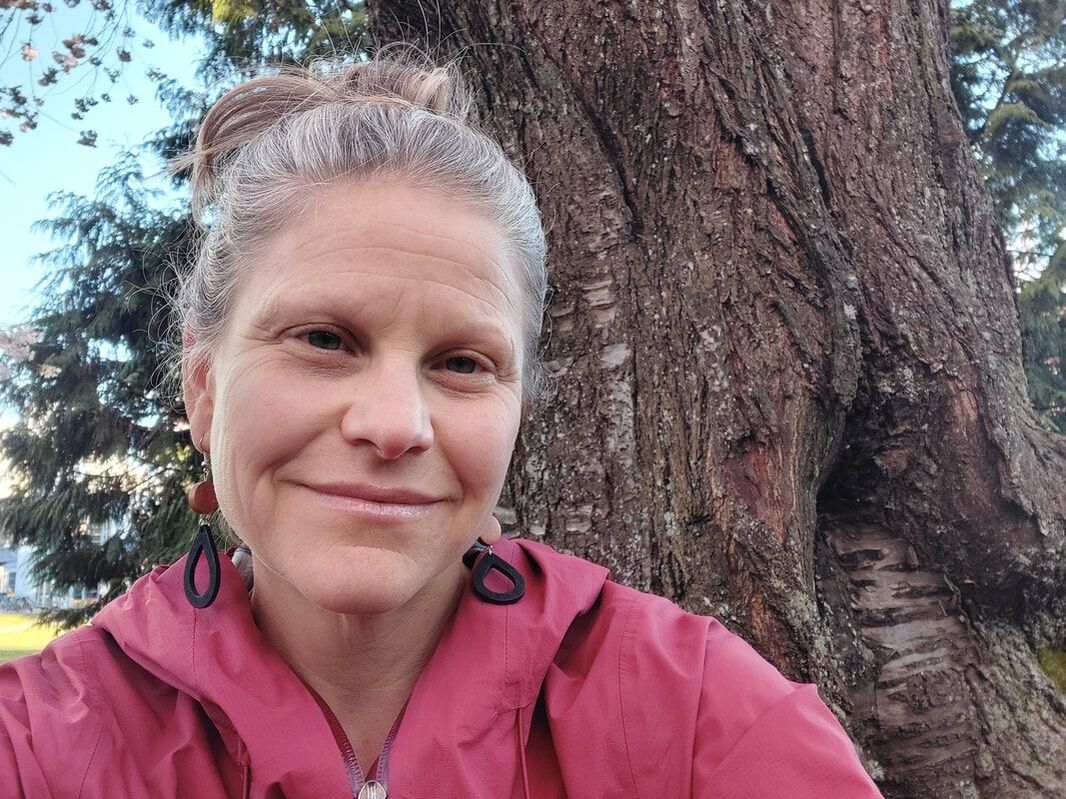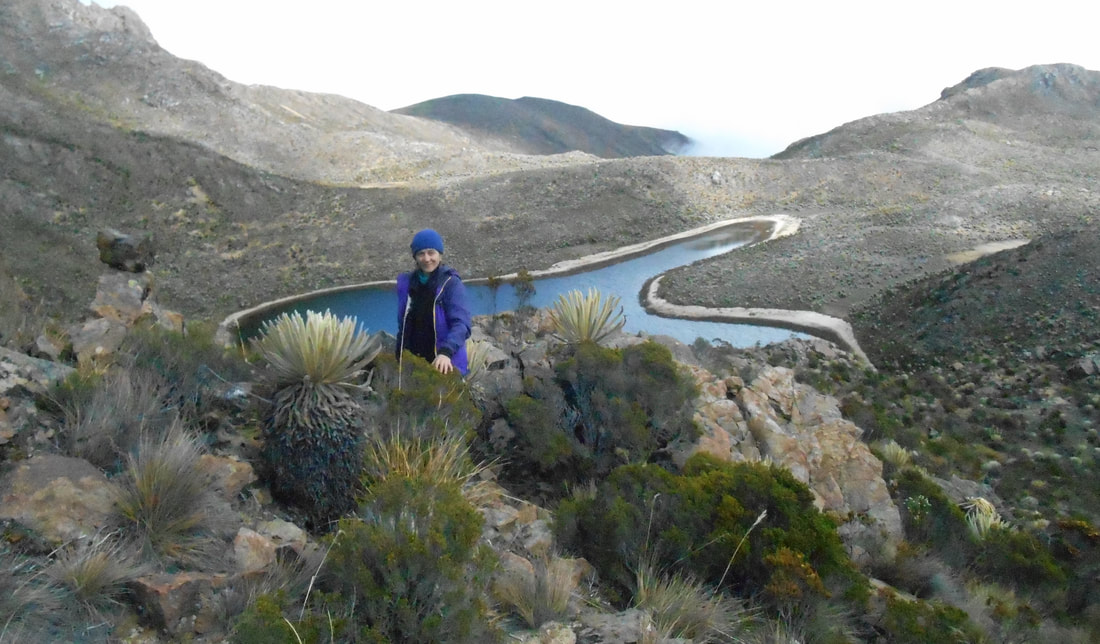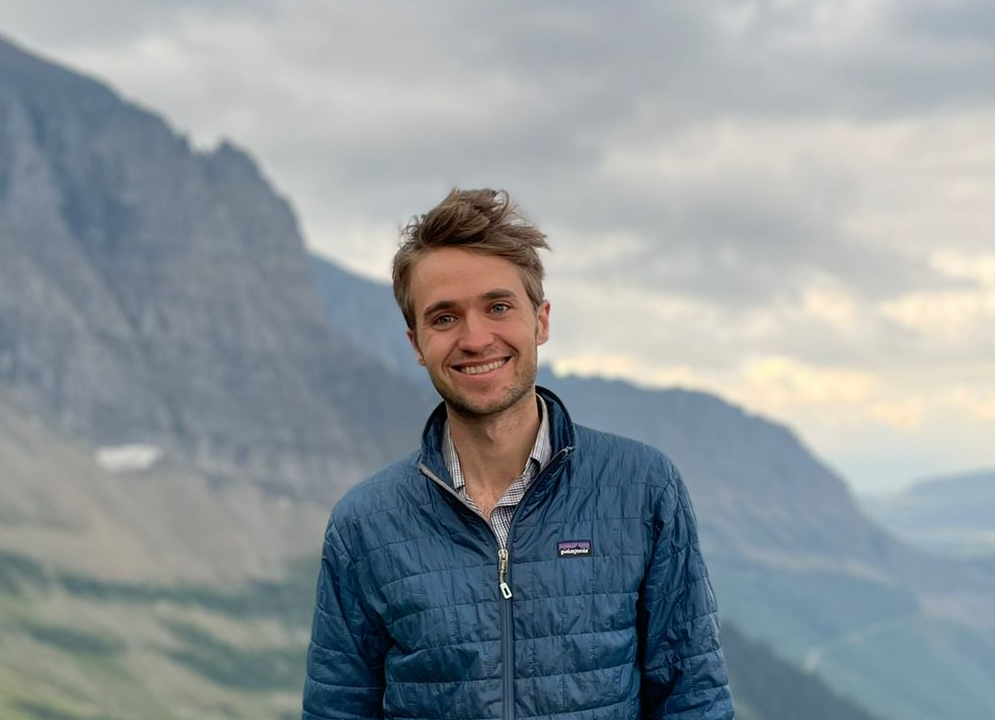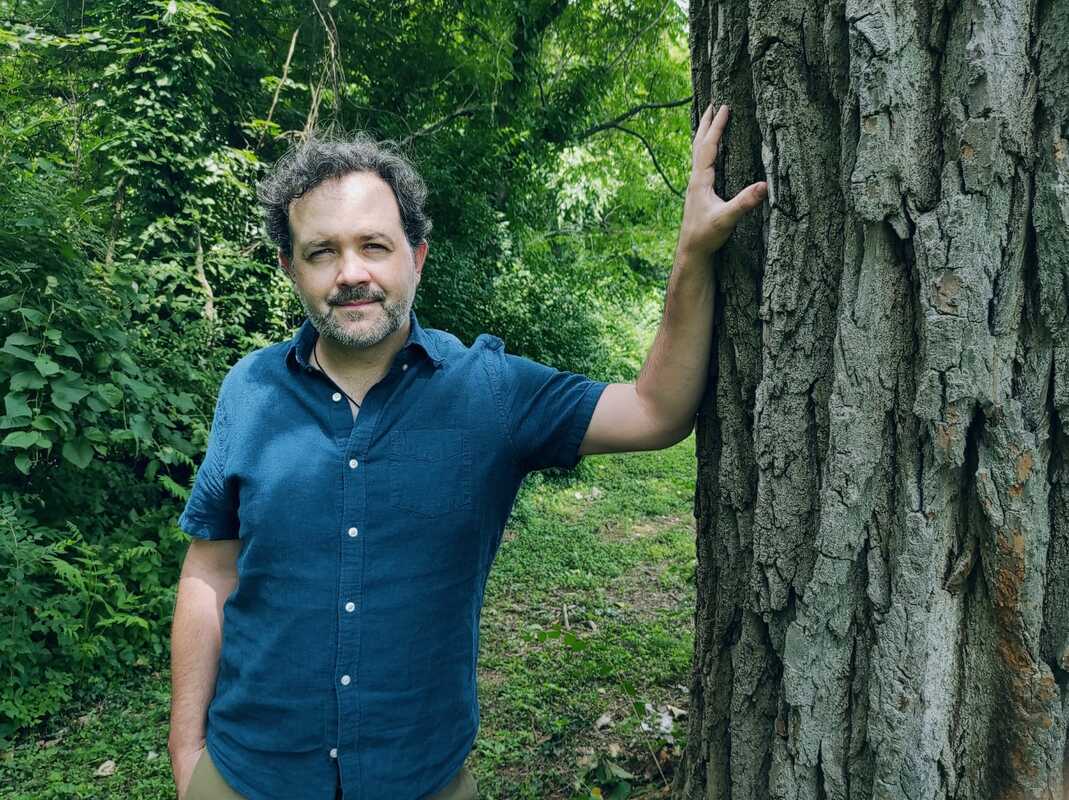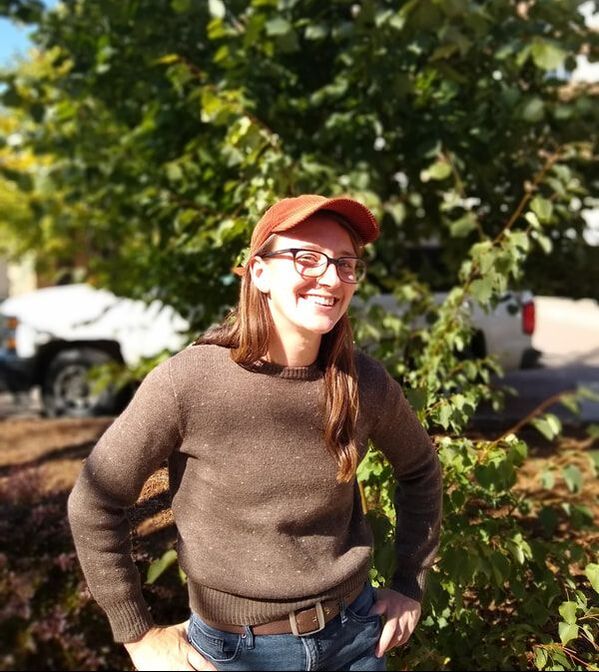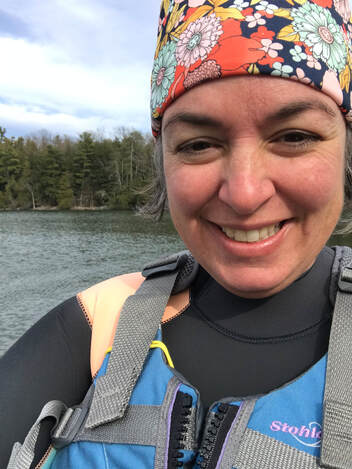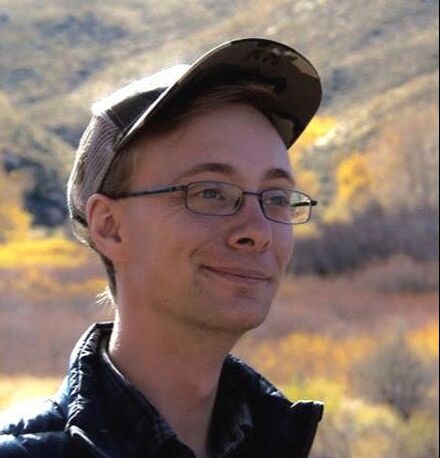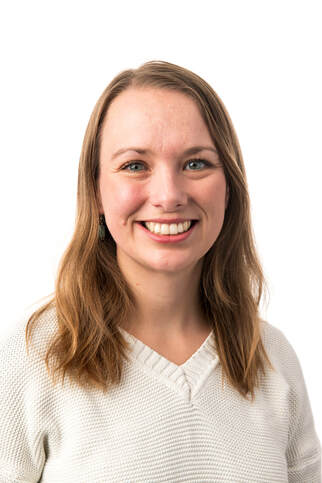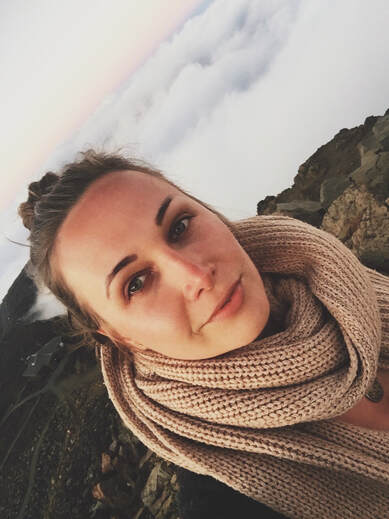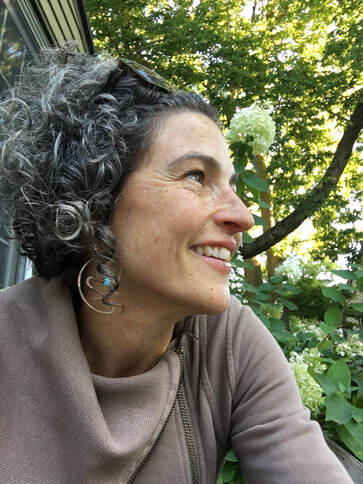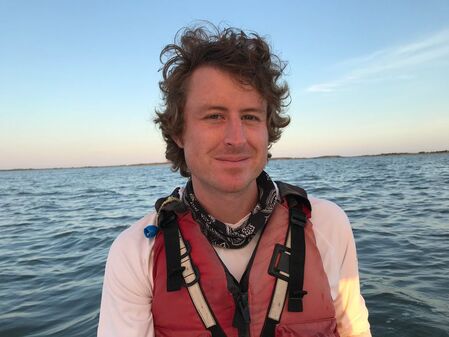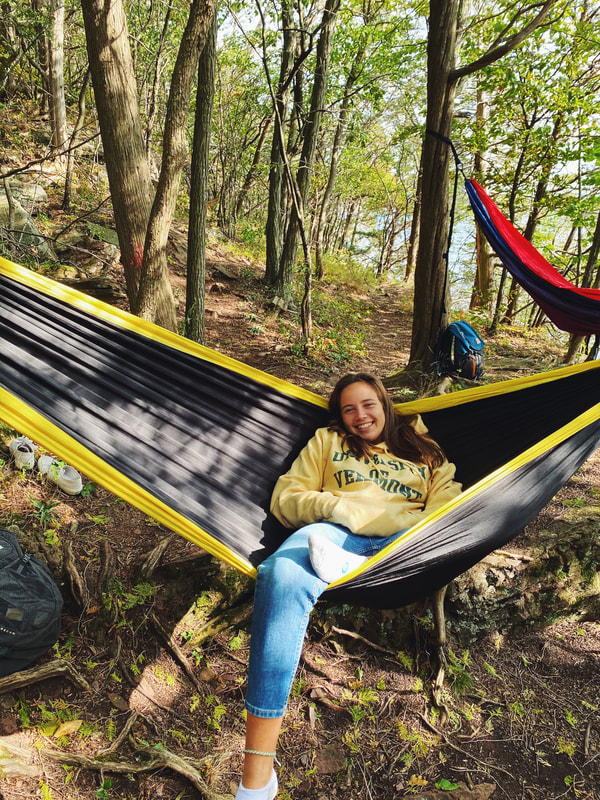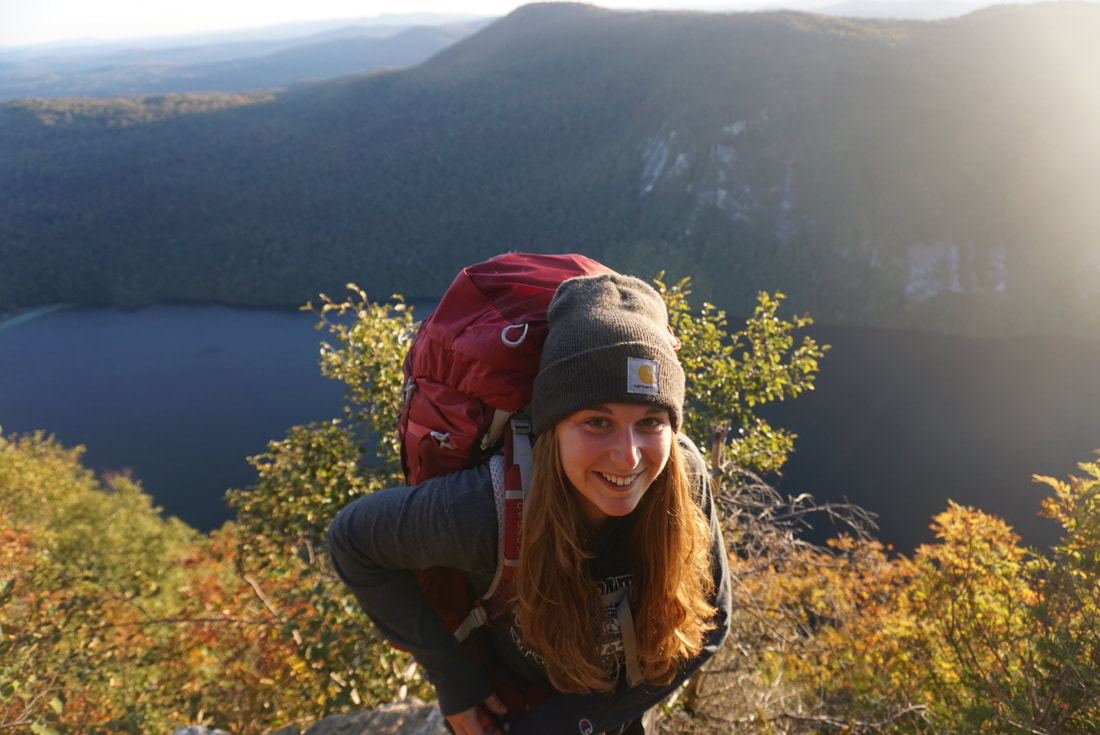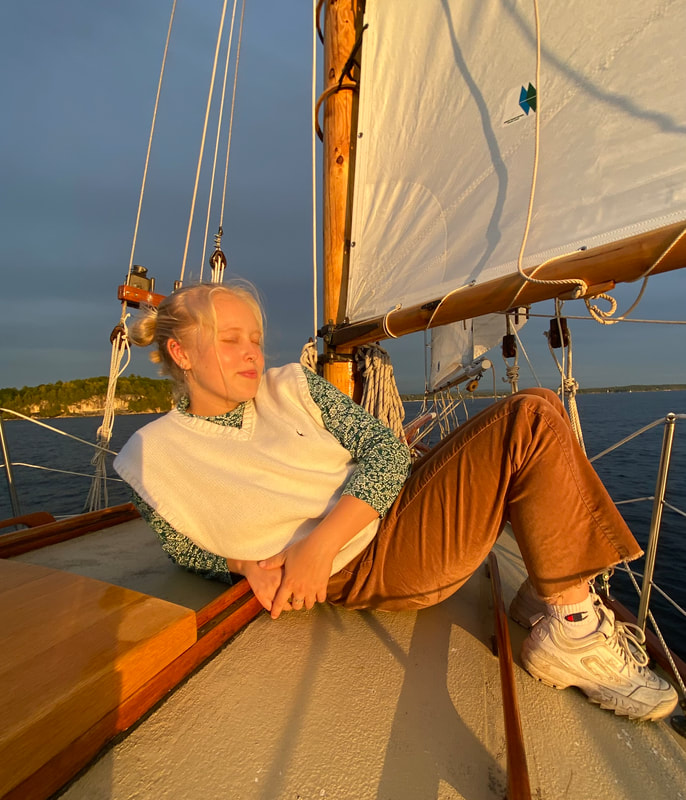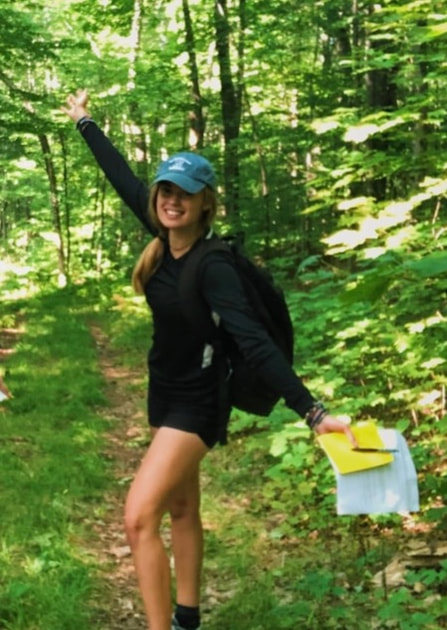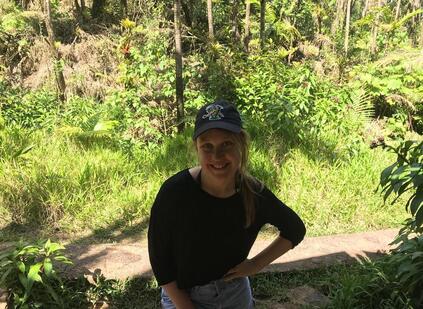Rachelle Gould
|
Rachelle Gould leads the Ecocultural Values Workshop. She is an inter- and transdisciplinary scholar whose work involves social science, the humanities, and a bit of ecology. Her research explores the relationship between people and ecosystems, with two foci: the values of nature (including cultural ecosystem services and relational values) and lifelong and life-wide environmental education and learning. Attention to equity and justice issues motivate and undergird this work. Community-based research is an important part of Rachelle’s approach, and her work has led her to multiple continents and scores of relationships with conservation practitioners, government officials, and local community members. These have included a higher education institution in Bhutan, The Nature Conservancy in Chile, and NGO and governmental partners in Kona, Hawaiʻi. She and her research team currently conduct research in Hawaiʻi, multiple locations in Vermont, and New York City, and insightful partners in these various places make the work what it is. Rachelle holds interdisciplinary environmental degrees from Harvard (BA), Yale (MA), and Stanford (PhD).
[Rachelle's CV] [Rachelle's Google Scholar page] |
Affiliated Former MacMillan Scholar (through UVM's Gund Institute)
Egleé Zent
|
Egleé was a Visiting MacMillan Scholar at UVM’s Gund Institute for the Environment in Fall 2021 with Dr. Gould and the Ecocultural Values Workshop as her hosts. Though she has returned to her native Venezuela, she remains an active collaborator. She is a mother of two wonderful College boys. Her academic formation is eclectic (art, anthropology, botany, conservation biology). She has conducted applied and theoretical research in two tropical ecological systems in Venezuela, the páramos of the high Andes among Parameros and lowland Amazonia among the Jotï, an Amerindian group. Her projects are collaborative and participative and have been carried out emphasizing the collective construction of knowledge and the needs of the people involved (e.g., human, health and territorial rights). Egleé's approach is trans-disciplinary, with diverse epistemologies, drawing in material and ideological, quantitative and qualitative aspects. Her areas could be labelled areas such as ethnoecology, ecogony, ethnocartography, human ecology. She has published about 70 texts. Egleé is committed to the care and love of the Earth, human and non-human processes and dynamics.
|
|
Postdoctoral Scholars
Harold Eyster
|
Harold is a transdisciplinary scholar who investigates environmental issues by interrogating relationships among humans and nature. Using an approach that draws on methods from ecology, sociology, anthropology, psychology, and economics, he studies how to marshal today’s salient human–nature relationships to enable more sustainable trajectories.
As a Gund Postdoctoral Fellow, Harold is investigating how cities can simultaneously support bird diversity and bolster outdoor recreation and belonging, particularly for traditionally excluded people. He holds a PhD from the University of British Columbia and an AB from Harvard. He brings his joy for birding, painting, Bayesian inference, and outdoor adventure into his research as much as possible, though he has yet to figure out a way of incorporating his enthusiasm for sourdough baking. |
Carlos Andres Gallegos-Riofrío
|
Carlos-Andres Gallegos-Riofrío works in planetary health action by combining behavioral, social and life sciences, arts, and communications. As a Gund Postdoctoral Fellow, he works with indigenous populations in Ecuador, Peru, and Bolivia to understand good living and mental health effects of disconnecting from Andean agroecosystems. In addition, Carlos-Andres is a Faculty Associate at the Buder Center for American Indian Studies in Washington University in St. Louis (WUSTL), advising on food sovereignly, resiliency, and sustainability. With 15+ yrs. of experience in applied research, he is the Scientific Advisor of the Caliata Initiative –an international community-based partnership promoting sustainability projects in rural Andes. Carlos-Andres collaborates with Drs. Iannotti (WUSTL, E3 Nutrition Lab) and Waters (Universidad San Francisco de Quito [USFQ]), acting as social marketing specialist for Ecuador’s pilot “Mikhuna Project: Evolutionary Maternal Nutrition.” He has a PhD in Social Work (WUSTL), a Master of Applied Anthropology and Participatory Development specialized in Society and Environment (Australian National University), and a BA in Psychology (USFQ).
|
PhD Students
Alison Adams (2015 - Present)
|
Alison is a graduate student fellow at the Gund Institute for Environment, and a student in the Economics for the Anthropocene program. Her research explores the non-material benefits humans receive from nature. She is particularly interested in how environmental change affects individuals’ subjective well-being and cultural practices, and the justice and equity implications of these effects. With a background in spatial modeling and land cover change, Alison considers how spatial patterns affect and emerge from people’s interactions with nature and climate change. Additionally, she is interested in the ways art can contribute to understandings of the intangible ways people and nature interact. Previously Alison worked in environmental advocacy on issues such as stopping uranium mining around the Grand Canyon and securing stronger protections for public lands. Alison has a BA in History of Art from Yale, and a MS in Natural Resources from the University of Vermont. [Alison's CV] [Alison's Google Scholar Page] |
Jen Cirillo (2015 - Present)
|
Jen Cirillo serves as Director of Professional Development at Shelburne Farms. She brings twenty years of experience in Education for Sustainability from co-developing and teaching a teen program integrating art, science and sustainability to her most recent work leading EFS professional development programs around the world. Jen has a strong background in standards-based curriculum development, facilitation, and evaluation plus a wealth of experience engaging schools and communities in creating a vision for a just and healthy future. Jen holds a B.S. from the University of Vermont and an M.S. from the Audubon Expedition Institute/Lesley University. She is the Co-Chair of the K-12 Sector of the US Partnership for Education for Sustainable Development and board member of Vermont Energy Education Programs. Jen lives in Vermont and feels fortunate to work at one of the most beautiful places on earth. [Jen's CV]
|
Joshua Morse (2017-present)
|
Josh is a PhD candidate at the Rubenstein School and a Gund Graduate Fellow. He uses interdisciplinary methods to study how natural resources are valued, and how those values are incorporated (or not incorporated!) into policy. Josh’s dissertation research centers on Vermont’s public and political debates over coyote management, and the role that stories play in communicating diverse values around wildlife. Josh is committed to returning concrete benefits to the communities he works with, and applies citizen science and environmental education approaches to conduct research that aims to contribute to the public good. Before graduate school, Josh worked as a land steward at a small land trust in western Massachusetts. In his spare time, he enjoys exploring the woods with his dog Pepper. [Josh's CV] [Josh's Google Scholar page] [A popular press piece by Josh] [Check out Josh on a podcast!] |
Diana Hackenburg (2017-present)
|
Diana is part of an interdisciplinary team examining the relationship between harmful algal blooms in Lake Champlain and human well-being. She will focus on how and why communities take action, specifically looking at how they understand and use scientific data to inform decision-making processes. Her research interests also include scientific communication, environmental risk perception, and socio-ecological systems. Previously, Diana worked with communities in North Carolina and Virginia on issues of water quality and land conservation, and most recently, spent time honing her science writing with North Carolina Sea Grant. Originally from Ohio, she has a BS from Marietta College, as well as a MSES and a MPA from Indiana University's School of Public and Environmental Affairs. [Diana's CV] |
Svenja Telle (2017-present)
|
Svenja was born and raised in Germany. At the age of 19, she moved to Costa Rica to support biodiversity conservation in several national parks. After returning to Europe, she completed a Bachelor’s degree in Sustainable Tourism in Germany, followed by a Master’s degree in Development Economics in Lisbon, Portugal. Upon graduation, she worked for the international organization “Transparency International”, with the aim to enhance integrity and transparency in global climate finance governance. Her subsequent position as a Sustainable Development Policy Analyst at the United Nations Secretariat provided her with the opportunity to work at the heart of climate change policy and toward the implementation of the sustainable development agenda. Svenja is now pursuing a PhD in Natural Resources at the Rubenstein School at UVM, and is a fellow with the Gund Institute for Environment and the Economics for the Anthropocene program. Her research interests lie in non material values of nature, eco-spirituality and indigenous community engagement strategies in land use policy decision making processes. |
Martha Caswell (2019-present)
|
Martha is the co-director of the Agroecology & Livelihoods Collaborative (ALC), a community of practice housed in UVM's Department of Plant and Soil Science that works to co-create evidence and knowledge with farmers and other actors, to cultivate socially just and ecologically sound food systems. As a PhD student, Martha looks forward to applying the frameworks of cultural ecosystem services and relational values to explore people's conceptualization of and motivation for pursuing food sovereignty. Martha holds a BA in American Culture from the University of Michigan, a Masters in Public Policy, with a focus on Poverty and Inequality from the University of Chicago, and a Certificate of Graduate Study in Ecological Economics from UVM. |
Daniel Pratson (2020-present)
Undergraduate Students
Alice Daeschler
|
Alice is a senior at the University of Vermont pursuing her B.S. in Environmental Science with a concentration in Conservation Biology & Biodiversity within the Rubenstein School. She is also double minoring in Wildlife Biology and Spanish. She is from Philadelphia, Pennsylvania, and grew up going to the Pocono Mountains where she got her appreciation and love for the environment. There, Alice has worked with the Pennsylvania Game Commission on black bear tagging and conservation. This summer, she did a study abroad program in the Turks & Caicos Islands where she learned about marine megafauna conservation. She hopes to pursue a career in wildlife and ecosystem conservation, hopefully somewhere she can use her Spanish. In addition, Alice is interested in the human impacts of conservation and our world. In her free time, Alice loves to hike, swim, run, and explore outside before it gets too cold. |
Kelly Manley
|
Kelly Manley (she/her) is a senior at the University of Vermont in the Rubenstein School of Environment and Natural Resources majoring in Environmental Studies. She is also a member of the Honors College and holds minors in Ecological Agriculture and Parks, Recreation, and Tourism. She is currently doing research to explore the role of nature in the lives of Vermonters during the COVID-19 pandemic and how this connects to gratitude for the environment. She found an interest in human behavior as it relates to environmental attitudes through Dr. Gould's Environmental Education class last fall. Outside of the classroom, she is co-chair of Fundraising for RALLYTHON, treasurer for the Alpine Ski Racing Club, and a member of the Club Swim Team. Kelly is from Hurley, NY and enjoys spending her free time skiing, hiking, paddleboarding, and traveling. She has worked a variety of jobs in the outdoors, and hopes to continue that trend after graduation by becoming an environmental educator.
|
|
Grace Kreitler
|
Grace Kreitler is a junior majoring in Environmental Studies and minoring in both Studio Art and Green Building & Community Design. She is interested in how socioecological factors of human lifestyle changes as we enter the anthropocene, with an emphasis on environmental justice and health. These interests have intertwined with her research assistance to Phd student Alison Adams of the Gund Institute for Environment and Natural Resources, where she helps to analyze the nonmaterial values that humans receive from nature and how environmental change impacts human benefits, culture, and wellbeing. Grace is also a Teaching Assistant to Professor Rachelle Gould for the Fall of 2021, as well as a leader of an environmental club on campus called Vermont Students Toward Environmental Protection. Grace is originally from Fairfield, Connecticut and loves to spend time outdoors and paint in her free time. |
|
|
|
|
|
Kennedy McCarthy
|
Kennedy McCarthy is a sophomore at the University of Vermont where she is working towards her B.S in Environmental Science with a concentration in Ecological Design. She is interested in the role government and policy play on environmental health, and is particularly passionate about the Lake Champlain ecosystem. She hopes to impact policy change with a scientific background and wants to work towards finding institutional solutions that will benefit both people and ecosystems. Kennedy’s passion for the environment has led her from her hometown on the Seacoast of NH to working on an organic farm about an hour outside of Nashville. Kennedy spent the semester learning about growing, harvesting, packaging and selling organic fruits, vegetables and herbs on a local scale. Kennedy is additionally a member of the ultimate frisbee team here at UVM, a community she spends most of her time with. In her free time, Kennedy loves to find the hidden beauties within her community, whether that's a new family run coffee shop or a lesser known natural area. |
Eve Lalumia |
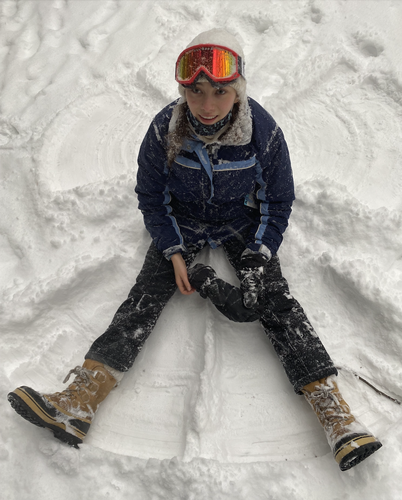
Eve Lalumia (she/her) is a sophomore at the University of Vermont majoring in Environmental Studies within the Rubenstein school of Environment and Natural Resources. She is also double minoring in Wildlife & Fisheries Biology and Community Entrepreneurship. She was born and raised in NYC but spent the last nine summers at Camp Waukeela for Girls in NH where her interest in the environment first sparked. She is a member of Dance Force, Beekeepers Club, Ski and Snowboard Club, and CCALL (climate, communication, action & literacy). She plans to travel to Patagonia, Chile in the Spring 2023 to study abroad. She will be with Round River Conservation Program working closely with local communities to combat the effects of climate change on landscapes. Her interest in conservation led her to assisting Professor Rachelle Gould in various research projects this semester. Outside of school, she likes to swim, hike, sail, paint, and read in her free time.
Workshop Alumni
Dr. Tatiana Marquina (graduated 2021)
|
Tatiana Marquina is a social scientist studying multiple ways human well-being relies on nature. Her Ph.D. research focused on the contributions of nature to non-material aspects of human well-being. Her dissertation explored different ways to measure non-material environmental values and the links between values and stewardship behavior. In addition to Ph.D. in Natural Resources, Tatiana holds BA in Political Science and MA in Environmental Planning. [Tatiana's CV] |
